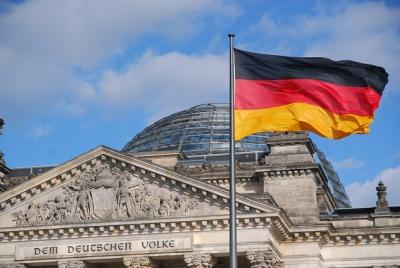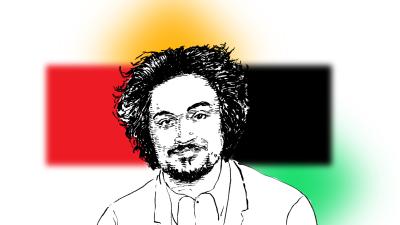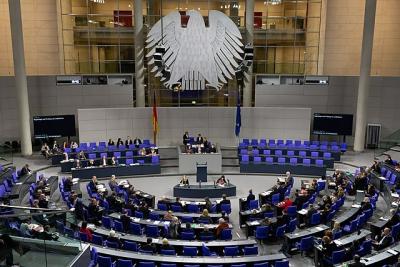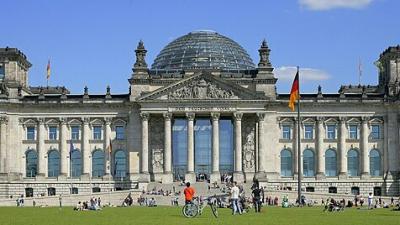Country Report: Germany, June 2023: The “Ampel”-Coalition wants the heat pump at any price - and is causing political instability
The German government is increasingly slipping the reins. For months it has been arguing about its latest project: the "heat turnaround" (“Heizungswende”). The project is modelled on the “energy turnaround” (“Energiewende”) that forced Germany to phase-out of nuclear power and scooped up "renewable energies" with the watering-can principle.
It is one thing that Germany has thus built up a huge installed capacity of gigawatts; but it is another that the (still) leading economy in the European Union cannot fall back on them in a so-called dark lull - that is, when the wind is not blowing and the sun is not shining. Due to the lack of storage facilities, Germany has to import nuclear power from France or "dirty" coal-fired power from Poland, of all places. Germany wants to be the world champion in climate protection, but it is still at the top of the league when it comes to CO2 emissions. There are countries in Europe that are more climate-friendly than the supposedly green Germany, even without a multi-billion dollar "energy turnaround".
However, Germany has learned little from the last decade of disastrous energy policy. Similarly, successive federal governments have for years pursued a “transport turnaround” that relies on toys like e-scooters and cargo bikes. Although German diesel technology is one of the most efficient drive systems, the internal combustion engine is to give way to electromobility - a plan that was set long before the ban on internal combustion engines. In view of the energy turnaround discussed above, it is hard to say where the electricity for the e-cars will come from if, after the nuclear power plants, the coal-fired power plants are also to be shut down, for Germany still has no storage facilities for wind and solar energy. France and Poland will hardly have the resources to "drag" Germany along. Inevitably, car traffic in Germany is to be restricted on principle. The federal capital Berlin in particular is experimenting with eliminating parking spaces and street lanes to make way for cycle paths. The experiment is currently going rather disastrously.
So now it's the heat turnaround. The Green Minister of Economics, Robert Habeck, has come up with a plan for heat pumps to serve as - once again - an electric alternative to "fossil" oil and gas heating. How this will benefit climate protection, when electricity is currently still being generated to a considerable degree from precisely these "fossil" elements, is deemed just as secondary as the question where the electricity is to come from, given that the e-car project is already threatening to fail due to the same problem. The fact that the installation of a heat pump can cost 50,000 to 100,000 euros, depending on the building, shook up even the protest-shy Germans, who could now be asked to pay such a "modernisation levy" either as homeowners or tenants via.
Admittedly, the “Ampel”-coalition (after the three colours of the “Ampel”, the traffic lights) has softened the law after an internal dispute. The nasty suspicion remains that this could be just the first chapter in another project for wasting taxpayers' money and looting taxpayers. Advocates of the heat pump point to France, where a corresponding project has long been underway - without, however, referring to the framework conditions, such as cheaper nuclear power. Critics, however, point to the example of Italy, where the subsidies led to a veritable wave of fraud. Moreover, the fact that the Minister of Economics plans to install 500,000 heat pumps per year, even though the German craft sector has warned that it absolutely cannot supply the manpower needed to cope with such a task. This surely puts feasibility of the whole project in question.
For the coalition, the conflict over the heat pump was a test of strength. Both the Social Democrats and the Liberals are justifiably worried about losing parts of their clientele at the next election because they did not oppose the law sufficiently strongly. On the other hand, a break with the coalition would already be punished: the poor poll results have led all parties to join forces to get the law through the Bundestag before the summer recess on 7 July. That this is at the expense of the quality of the law in face of such a far-reaching and criticised bill is widely known, but ignored. The hope is that the bill will be forgotten by the summer recess, whereas a wide-ranging discussion and correction could lead to a further increase in government bickering and popular discontent. However, the method of pushing the controversial package through parliament as quickly as possible has aroused the distrust of the opposition and the citizens all the more.
In the Bavarian city of Erding, a town near Munich with a population of around 36,000, resentment against the “Ampel”-government has been unleashed for the first time in a way previously only known from the east of the country. Otherwise, Erding is known for the wheat beer of the same name; on 10 June, more than 13,000 people protested there against the green climate policy. In such a constellation, this was a singularity in German federal politics so far. Two weeks later, the Thuringian district of Sonneberg elected a district administrator from the right-wing nationalist AfD party for the first time. It has to be said: the federal government is currently doing its utmost to ensure that such exceptional occurrences will soon become the norm.
Read also
The Individual on the Defensive
Do Nazis have a right to life? Outside Germany, such a debate might seem perplexing. But during the last days of May, discussions in Germany revolved around nothing less, after a left-wing extremist was released under quite lenient conditions.
Marco Gallina
A King for Germany
King Charles III visited Germany, continuing thus a line of tradition established by his mother. Not so much the visit itself, but rather the reactions to it cast a telling light on Germany in particular, and Europe in general. Monarchy, one could have the impression, is actually something that belonged to the Middle Ages.
Marco Gallina
Country report: Germany, July - How the German government tried to undermine parliament
The traffic light government consisting of Social Democrats, Greens and Liberals had wanted to push the "heat turnaround" through the German parliament by brute force.
Marco Gallina
The Weakness of the CDU
he current crisis of the Christian Democratic Union raises the question whether the CDU is also facing a path similar to that of the Italian Democrazia Cristiana.














Comments (0)